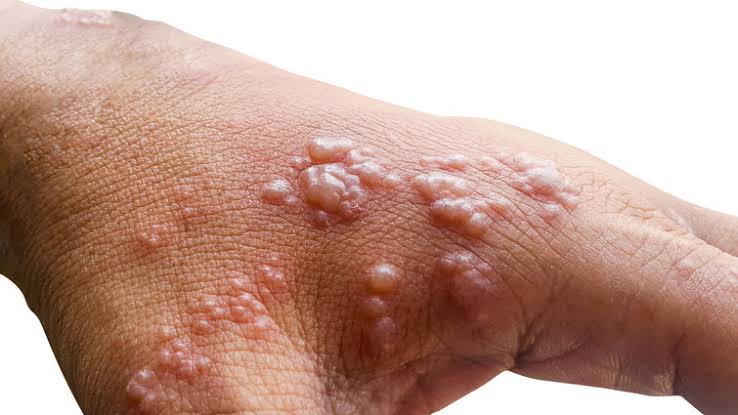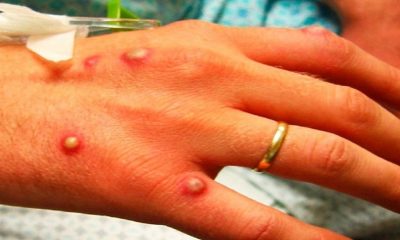Health
Causes, Symptoms And Treatment Of Monkeypox

Monkeypox is a viral zoonosis (a virus transmitted to humans from animals) with symptoms similar to those seen in the past in smallpox patients, although it is clinically less severe.
With the eradication of smallpox in 1980 and subsequent cessation of smallpox vaccination, monkeypox has emerged as the most important orthopoxvirus drawing attention of public health practitioners.
READ ALSO: Five Likely Causes Of Nipple Pain
Monkeypox primarily occurs in central and West Africa, often in proximity to tropical rainforests, and has been increasingly appearing in urban areas.
Animal hosts include a range of rodents and non-human primates.
Various animal species have been identified as susceptible to monkeypox virus. These includes rope squirrels, tree squirrels, Gambian pouched rats, dormice, non-human primates and other species. Uncertainty remains on the natural history of monkeypox virus and further studies are needed to identify the exact reservoir(s) and how virus circulation is maintained in nature.
Animal-to-human transmission can occur from direct contact with the blood, bodily fluids, or cutaneous or mucosal lesions of infected animals.
Human-to-human transmission can result from close contact with respiratory secretions, skin lesions of an infected person or recently contaminated objects. Transmission via droplet respiratory particles usually requires prolonged face-to-face contact, which puts health workers, household members and other close contacts of active cases at greater risk. However, the longest documented chain of transmission in a community has risen in recent years from 6 to 9 successive person-to-person infections. This may reflect declining immunity in all communities due to cessation of smallpox vaccination. Transmission can also occur via the placenta from mother to fetus (which can lead to congenital monkeypox) or during close contact during and after birth. While close physical contact is a well-known risk factor for transmission, it is unclear at this time if monkeypox can be transmitted specifically through sexual transmission routes. Studies are needed to better understand this risk.
Symptoms of monkeypox can include:
- Fever.
- Headache.
- Muscle aches and backache.
- Swollen lymph nodes.
- Chills.
- Exhaustion.
- A rash that can look like pimples or blisters that appears on the face, inside the mouth, and on other parts of the body, like the hands, feet, chest, genitals, or anus.
There are no treatments specifically for monkeypox virus infections. However, monkeypox and smallpox viruses are genetically similar, which means that antiviral drugs and vaccines developed to protect against smallpox may be used to prevent and treat monkeypox virus infections.
Send Us A Press Statement Advertise With Us Contact Us
And For More Nigerian News Visit GWG.NG




